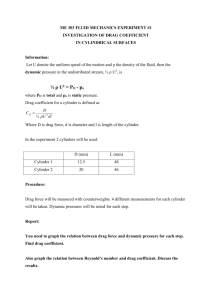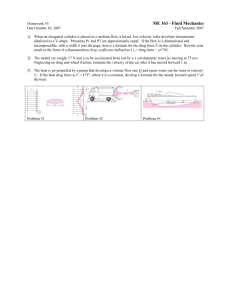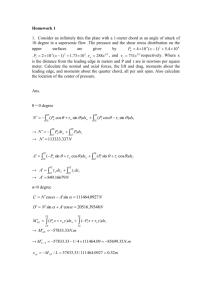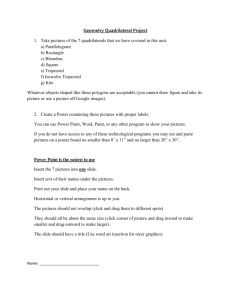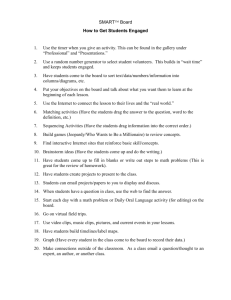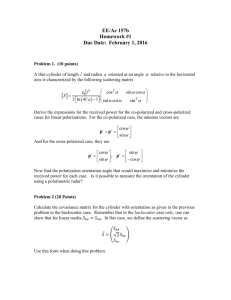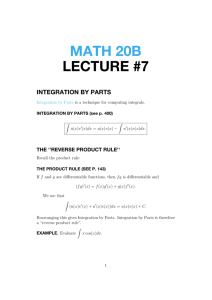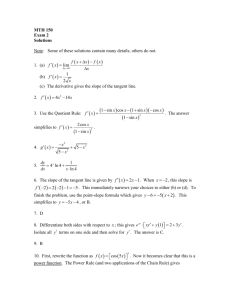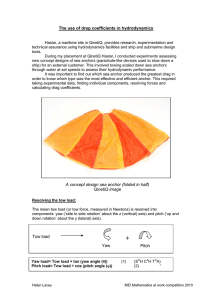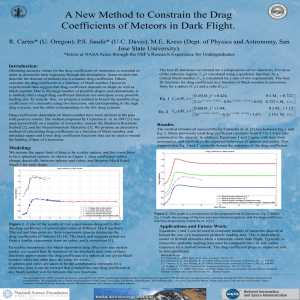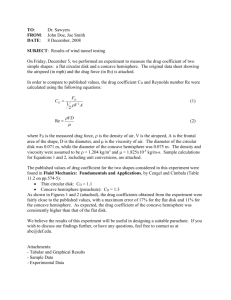Drag
advertisement
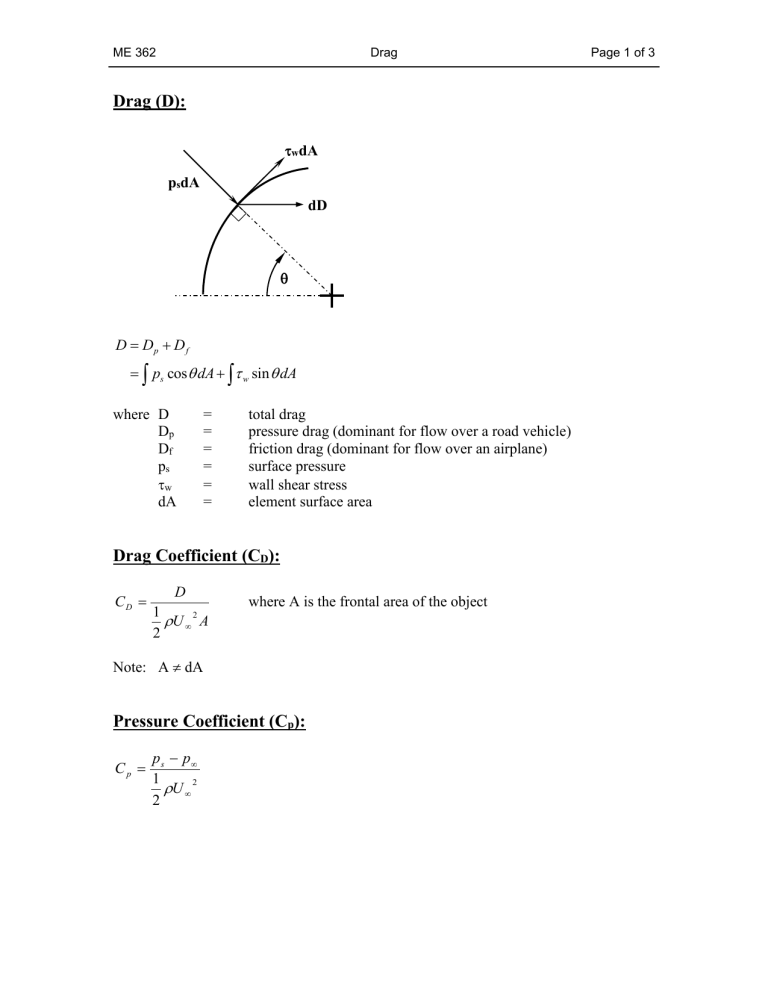
ME 362 Drag Drag (D): wdA psdA dD D Dp D f ps cos dA w sin dA where D Dp Df ps w dA = = = = = = total drag pressure drag (dominant for flow over a road vehicle) friction drag (dominant for flow over an airplane) surface pressure wall shear stress element surface area Drag Coefficient (CD): CD D 1 U 2 A 2 where A is the frontal area of the object Note: A dA Pressure Coefficient (Cp): Cp p s p 1 U 2 2 Page 1 of 3 ME 362 Drag Page 2 of 3 Flow Over a Circular Cylinder: 2 Dp p s cos dA ( p s p ) cos dA 0 C D, p 2 2 (Note: 0 p cos dA 0 ) 0 ps Dp dA = adb 1 U 2 A 2 U where CD,p a b dA A = = = = = d pressure drag coefficient cylinder radius cylinder width (into the page) adb (ad = arc length) 2ab (frontal area) a Solution Procedure: Step 1: Find stream function or potential function by superposition of elementary flows uniform doublet or uniform doublet Step 2: Find surface velocity V,s at cylinder surface (r = a) V ,s V r a r r a 1 r (Note: Vr ,s Vr r a r a 1 r r a r Step 3: Find surface pressure ps from Bernoulli equation ps 1 1 V2,s p U 2 2 2 Step 4: Find pressure coefficient Cp or pressure drag coefficient CD,p Cp C D, p p s p 1 U 2 2 Dp 1 U 2 A 2 where D p 2 2 0 0 ps cos dA ( ps p ) cos dA 0) r a ME 362 Drag Page 3 of 3 Example: U a K The stream function for potential flow past a circular cylinder (radius = a and width = b) with circulation is given as: a2 r U sin (r ) K ln r a The tangential velocity at the cylinder surface (r = a) is then calculated as: v (r a) 2U sin K a K 1 , show that two stagnation points (at which v 0 ) appear on the Ua surface at angles = 30 and 150. a) For b) Assume that on the front surface ( -90 90 ), the velocity is given by the K 1 from which the surface pressure ps is computed potential flow theory with Ua by Bernoulli’s equation. On the rear surface ( 90 270 ), the pressure is assumed equal to its value at = 210 to model the overall effect due to flow separation. Compute the pressure drag coefficient CD,p, where C D, p Dp 1 U 2 (2ab) 2 Note that sin n cos d 2 and D p ( p s p ) cos (ad b) 0 sin n 1 n 1
